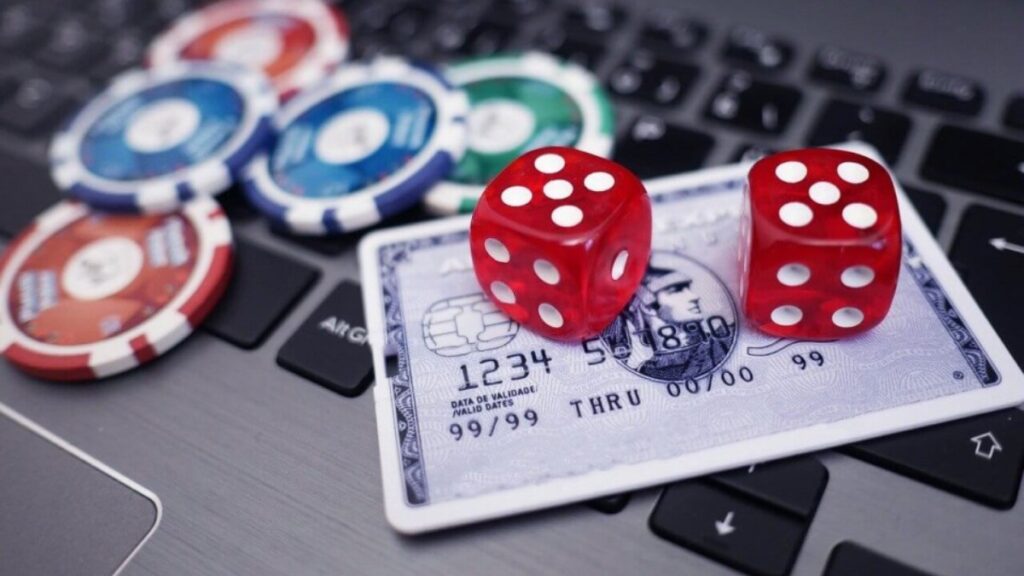In a 2020 study by GREO, it was found that many people gamble using credit cards. Aside from that, many gamblers are also fond of using other forms of credit (such as loans or overdrafts) when gambling online.
The NCESC also reported that in the US, the average gambling debt is around $17,000 for an average gambler.
The primary factors driving the growth of gambling are its accessibility and ease of use. With most gambling sites accepting credit cards, it’s easier than ever for gamblers to lose money they don’t have.
It’s no surprise that gambling is now considered a new debt epidemic across the world.
What is Gambling Debt?
The term “gambling debt” describes the monetary commitments brought on by gambling. This type of debt occurs when a gambler uses up all of their available funds and then borrows more to keep betting.
This means that if someone has used credit cards, taken out personal loans, borrowed from friends or family, or even resorted to payday loans and other high-interest financial products to gamble online or offline, they are already in debt from gambling.
In the GREO study referenced above, it was found that men dominantly use credit cards to gamble (around 65%). The study also revealed that credit card gamblers tend to spend most of their money on the National Lottery.
The Slippery Slope of Gambling Debt & What Causes It
One thing many people tend to forget is that gambling is all about risks. Using credit cards to fund this activity can make it even more dangerous. Here’s how casino debt from credit card use and loans can turn into a financial crisis:
False Sense of Security
When you gamble with a credit card, it’s easy to lose track of how much you’re actually spending. Swiping plastic doesn’t feel the same as handing over cash because digital money can sometimes feel like just numbers on a screen. The same applies to credit limits — they can seem like an endless supply of funds, which makes it easy to overspend.
Paying More Than The Amount Used
Credit card interest rates are notoriously high, often exceeding 20% APR. Since a win isn’t guaranteed, you may not be able to recover the money you borrowed, and the interest charges will continue to pile up.
So, what’s the next thing you might consider doing? Borrowing more.
This creates a dangerous cycle where the debt grows exponentially, and it becomes harder to get back on track. What started as a small loss can quickly snowball into an unmanageable debt burden.
Easy Access to Credit
Aside from the easy access to gambling, securing loans and credit cards has become easier these days. Many credit card companies are quick to increase your limits if you’ve been a good payer in the past, and you might be tempted to ask for more credit to fund your gambling activities.
If that doesn’t work, you might turn to payday loans, which tend to be even more expensive. Many payday loan providers don’t require a high credit score to approve loan requests, which can make it even easier to accumulate more online gambling debt.
Implications and Potential Pain Points of Gambling Debt

Now that you understand how easy it is to fall into the trap of gambling with credit cards, what happens when things go south? Here’s how gambling debt can negatively impact players:
Financial Ruin
When you’re using credit cards, it’s not just your current funds on the line. If things go wrong, your house, your car, and your entire financial future can be affected. The worst-case scenario is losing them—and then some.
High interest rates can turn a small loss into a mountain of debt that’s hard to conquer. You might end up filing for bankruptcy, receiving countless calls from debt collectors, and facing questions from friends and family about the money you owe them.
Relationship Breakdown
Money problems are a leading cause of relationship stress, and adding gambling debt only makes things worse, especially when it’s something that could have been avoided. Imagine telling your partner that you’ve secretly racked up thousands of dollars in credit card debt because you couldn’t stop betting on a losing streak.
If you’re lucky, your partner might help you through it without much complaint. If not, expect arguments, resentment, and possibly even divorce—another expense you’ll have to deal with. The same applies to your relationships with friends and family.
Mental Health Takes a Dive: Anxiety, Depression, and Worse
Gambling addiction is a serious mental health issue that often goes hand-in-hand with anxiety and depression. When you’re drowning in debt and feel like you’ve lost control, it’s easy to spiral into despair.
Suicidal thoughts are a real risk for people struggling with gambling addiction, and it’s crucial to seek help if you’re feeling this way.
Crime Doesn’t Pay (But Some People Try Anyway)
Some people feel they have no options left to fix their gambling debt. Unfortunately, this desperation can lead some to turn to theft, fraud, and even violence. A study by the National Institute of Justice found that nearly one-third of arrestees identified as pathological gamblers admitted to committing robbery.
How Can the Government Help?
In the United Kingdom, the use of credit cards for gambling-related activities is already prohibited. The UK Gambling Commission (UKGC) announced this ban in April 2020 after recognizing the rise in problem gambling associated with credit cards and loans.
Neil McArthur, the chief executive of the Gambling Commission, stated, “Credit card gambling can lead to significant financial harm. The ban we have announced should minimize the risks of harm to consumers from gambling with money they do not have.”
He also mentioned that 22% of online gamblers using credit cards are problem gamblers, and the ban aims to offer additional protection to vulnerable individuals.
This is an approach the United States can consider, and there are already efforts in some states pushing for a credit card gambling ban. Iowa became the first state to ban credit card gambling, just a few months after the UKGC implemented the ban.
Pennsylvania is another state considering similar legislation. Last year, Senator Wayne D. Fontana introduced a bill addressing this issue. While the bill is still in the legislative process, it may take some time before it passes.
Other states exploring the possibility of banning credit card gambling include Massachusetts, Tennessee, North Carolina, and Wyoming.
How To Get Out of Gambling Debt
When you’re deep in gambling debt, things can feel hopeless. However, there are steps you can take to regain control and get help from professionals and gambling-related organizations. Here’s what you can do:
Check for Financial Assistance Options
Once you’ve acknowledged the problem, it’s time to explore financial help for gambling debt. Credit counseling agencies can assist with budgeting, negotiating with creditors, and developing a debt management plan.
You may also want to inquire if they can help you qualify for debt consolidation or similar solutions. As a last resort, you might consider filing for bankruptcy, but it’s crucial to seek advice from professionals before making that decision.
Look Into Gambling Debt Relief Programs
Some organizations specialize in gambling debt relief and offer programs specifically for gambling-related debt. The National Council on Problem Gambling (NCPG) in the US offers resources to help with problem gambling and related financial issues.
Take Control of Your Finances

Create a realistic budget based on your income. Prioritize debt repayment and essential expenses. This is where delayed gratification can come in handy—hold off on unnecessary spending, and if your income isn’t enough, consider finding ways to earn more money.
Casino Debt – FAQs
How can I tell if I have a gambling problem?
It can be difficult to tell if you have a gambling problem on your own. However, as soon as you find yourself wanting to borrow money just so you can gamble, know that it’s already problematic gambling behavior.
How can I protect myself from gambling-related debt?
Responsible gambling is key to protecting yourself from gambling-related debt. As much as possible, do not gamble with someone else’s money or money that you don’t have. Make sure that you can afford to lose the money you’ll be spending on gambling.
Can gambling debt be discharged in bankruptcy?
Discharging gambling debt in bankruptcy can be complicated and depends on various factors like the type of bankruptcy filed and the circumstances surrounding the debt. It’s best to consult with a bankruptcy attorney to understand your options and the potential implications for your specific situation.
